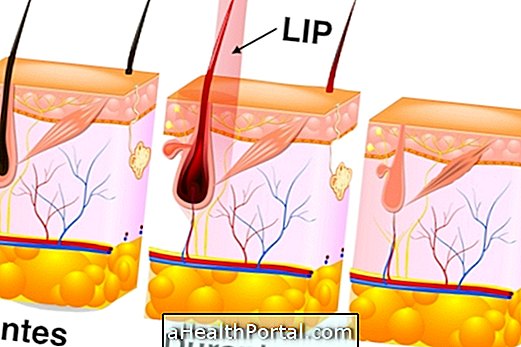Levothyroxine, Propylureacil or Methimazole are some of the remedies used to treat thyroid disorders as they help regulate the functioning of this gland.
The thyroid can suffer from diseases that cause its functioning to be exaggerated, causing hyperthyroidism, or causing it to function poorly, generating hypothyroidism, caused by inflammation, diseases of immunity or infections, for example. Learn more about diseases that can affect the thyroid.
Thyroid remedies can help to regularize these changes, and should be indicated by the doctor, especially the endocrinologist, and the type of medicine, dose and duration of treatment depend on the cause, type of disease, and the symptoms presented by the person. We summarize the main options here:

1. Remedies for Hyperthyroidism
The remedies used in the treatment of hyperthyroidism are called antithyroid drugs because they are responsible for inhibiting the production of thyroid hormones, and some of them are:
- Propylthiouracil (Propylracil) - is an antithyroid drug which has in its composition Propylthiouracil, a compound responsible for inhibiting the production of thyroid hormones;
- Methimazole - is a thioimidazole antithyroid agent that helps regulate thyroid function;
- Tiamizol (Tapazole) - is an antithyroid medication that inhibits enzymes responsible for the synthesis of thyroid hormones.
In some cases, the use of medications may not be sufficient to treat hyperthyroidism, and therapies such as radioactive iodine or even thyroid surgery may be indicated by your doctor. Learn more about the other treatment options that exist in Treatment for Hyperthyroidism.
2. Remedies for Hypothyroidism
The remedies used in the treatment of hypothyroidism are responsible for the replacement or supplementation of thyroid hormones, and some of them are:
- Levothyroxine (Puran T4, Euthyrox, Tetroid or Synthroid) - are medicines that have in their composition the active principle Levothyroxine, capable of replacing the hormone that is normally manufactured by the thyroid gland, thus allowing its replacement.
Levothyroxine should always be started at low doses and adapted according to each person's tests to avoid excessive doses that cause side effects or even cause hyperthyroidism, especially in older patients who may be more sensitive to the effects of the drug . more details about Hypothyroidism Treatment options.
Possible Side Effects of Treatment
The effects of treatment with drugs to treat thyroid disorders depend on the type of medicine used and the dose, however, some of the side effects that may arise include sweating, loss of appetite, dizziness, weakness in the legs, sudden mood swings, nausea, vomiting, hair loss, itching, drowsiness, headache, insomnia, irritability, fever, rapid weight loss or diarrhea.
Weight gain may occur during the treatment of hyperthyroidism because it slows down the metabolism that was elevated in the disease. Weight loss can happen in the treatment of hypothyroidism, because while this disease is decompensated, there may be weight gain, however, there is no rule. Learn more about what are the symptoms that indicate thyroid disease.
The treatment of thyroid disorders is not a certain and linear treatment, because the doses required for each person will be different, so it is necessary to adjust the dose throughout the treatment. These adjustments are made by the doctor, who can evaluate the response to treatment and side effects, and based on this information, decides whether to increase, maintain or lower the dose of the medicine.
Watch the video below for nutritionist advice on how diet can promote thyroid function.




























